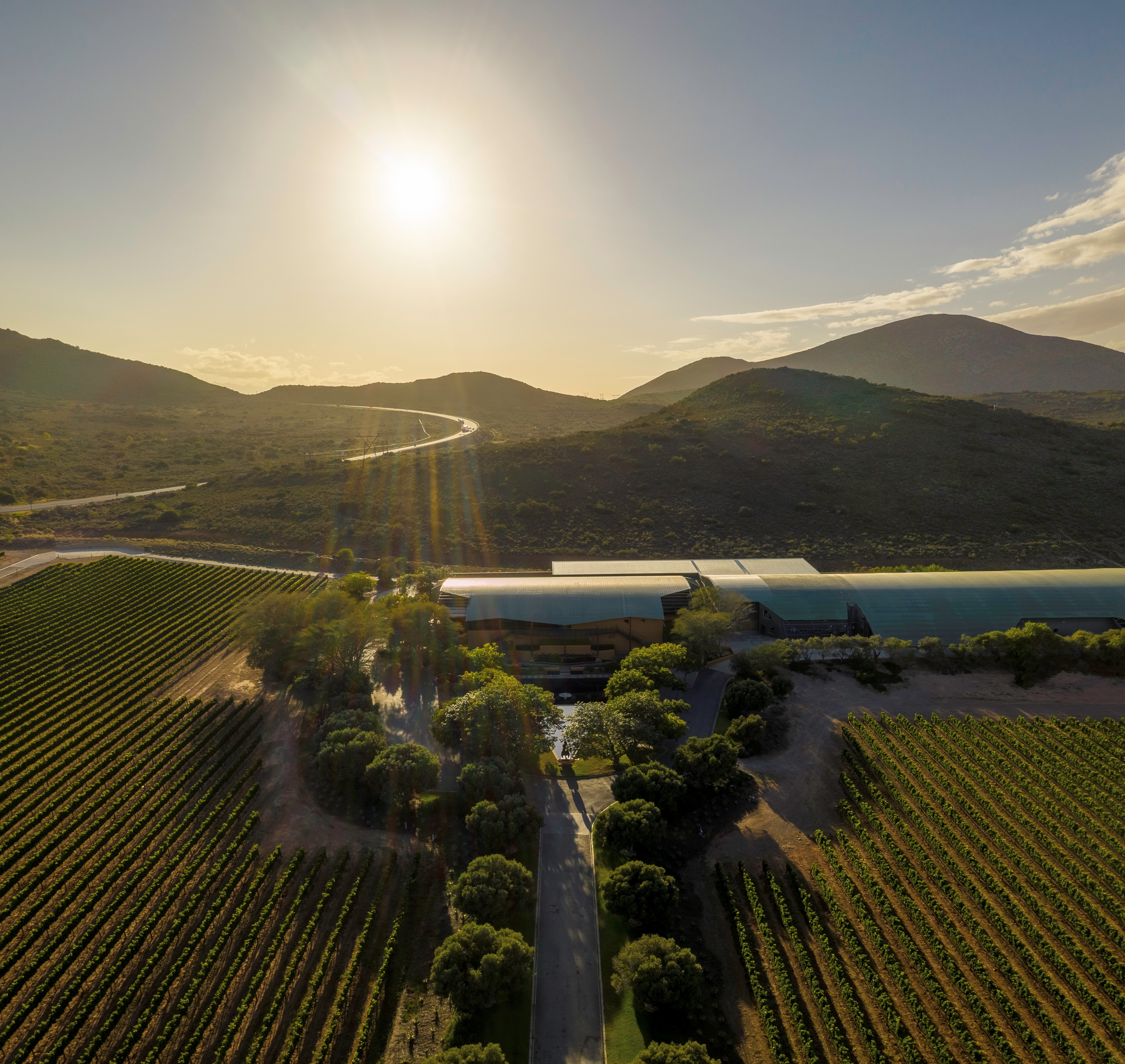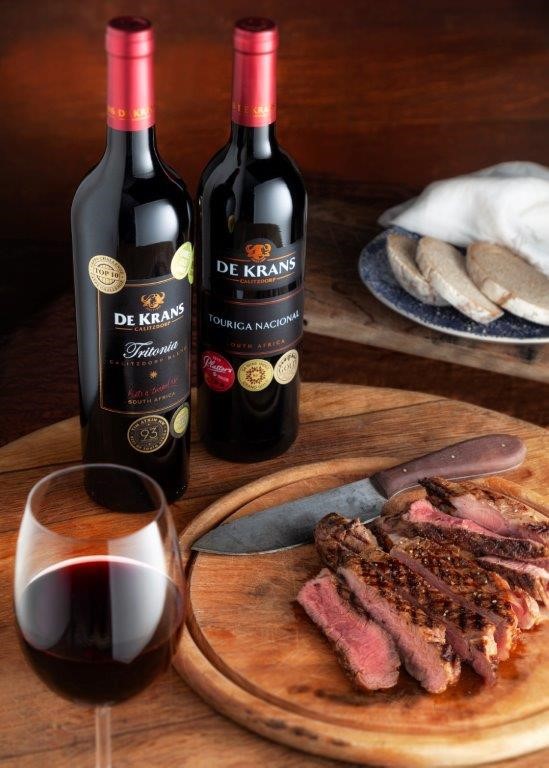Conservation and wine – 10 years on
In South Africa, nearly 95 percent of winegrowing takes place in the unique Cape winelands habitat of the Northern and Western Cape. This region is also home to both the Cape Floral Kingdom (CFK) and the Succulent Karoo. The CFK, one of only six floral kingdoms in the world, has the highest diversity and concentration of plant species in relation to its size and it is globally recognised as one of 34 biodiversity ‘hotspots'. Close to 10 000 species have been recorded to date and 70 percent of these are found nowhere else in the world. Despite this, only nine percent of this unique region enjoys formal protection within national or provincial reserves. As much as 80 percent of this highly threatened landscape is in the hands of private landowners, making them critical to the conservation success of this World Heritage site region.

Photograph: Tielman Roos Jr
A little more than a decade ago, a conservation partnership was established with the wine industry to reduce farming impact and proactively ensure suitable expansion in this region by joining hands with wine producers as the private landowners to assist them to increase the private footprint of protection for all critically endangered natural habitats in our winelands.
This resulted in the Biodiversity & Wine Initiative (BWI) being established in 2004, using a voluntary membership model to create broad awareness of the key environmental issues and promote individual landowner stewardship of conservation-worthy sites, while also supporting the industry’s journey to committing to a minimum compliance as a voluntary industry-wide benchmark. This was done in parallel to an approach advocating continual improvement beyond minimum compliance towards becoming industry leaders (ie previous BWI Champions) in managing ongoing key risks and making long-term conservation commitments. As a result, the South African wine industry has since gained international recognition as leaders of the global wine sector in demonstrating the balance between nature and farming.
To encourage industry uptake of good farming practice and conservation commitment, the BWI provided 10 years of free advisory support and guidance to producers between 2005 and 2015. The aim was raising awareness and conservation of the unique CFK, and active participation from wine producers interested in reducing environmental pressures on these areas. The entry-level BWI members and producer cellars pursued obtaining minimum compliance by initiating effective management of vineyards and sound conservation of the surrounding natural areas, while many of the industry leaders adopted a continual improvement approach, going well beyond minimum compliance and adherence to good practice as BWI Champions, showcasing conservation commitment and significant resourcing of managing the farm at a level of best practice, according to Inge Kotze, WWF Senior Manager: Sustainable Agriculture, and Shelly Fuller, Sustainable Agriculture: Fruit & Wine Programme Manager, WWF-SA, who filled me in on developments since then.
A WWF review of the impact and success of this initiative showed that its free extension and producer membership model laid a strong foundation of awareness of key environmental issues and the need for conservation of key habitats, and drove participation of a critical mass of industry producers committed to implementing conservation-minded farming practices. As a result, at least a third of the South African wine producers now have farm-specific environmental management plans in place, co-developed with the WWF extension team. They have also had sufficient training and gained the necessary experience to continue to manage their farms using these guidelines.
During 2014/15, WWF reviewed the achievements of the past decade, and the model of servicing and financing an ever-growing base of producers. With 90 percent of the South African wine producers having registered and now complying with the Integrated Production of Wine (IPW) scheme, and receiving acknowledgement under the Sustainable Wine South Africa certification seal used on the neck of the wine bottle, it was clear that the BWI and IPW had been successful in creating an awareness of the key environmental issues and necessary actions to ensure that the industry as a whole meets a standard of minimum compliance and good practice.
This informed the discontinuation of the BWI membership model and a repositioning of the WWF partnership with the industry to continue to address new environmental risks and trends; promote and support the industry to focus on continued improvement in key areas of risk; and showcase and share the learning of leaders of best practice in the sector to inspire others to aspire towards this.
In 2015, WWF announced that the BWI model membership would be discontinued, and worked with BWI members and industry partners to maintain, enhance and grow the previous BWI Champion status, rebranded as Conservation Champions, to create a new level of partnership driving leadership and best practice within the industry.
“This renewed partnership will focus resources and efforts towards supporting continued innovation and growing the industry leaders aspiring to best farming and conservation commitment, while also moving beyond the impact on individual farms to growing these producers’ influence and support in spearheading broader engagement within their local catchments on issues such as water stewardship; effective fire and alien plant management; seeking alternatives to enhance energy and water efficiency; reducing and recycling waste; and building on sustainability efforts of other partners in the wine value chain such as packaging, transport and retail commitments,” explained Fuller.

© WWF-SA
Currently, there are 39 WWF Conservation Champions acknowledged by WWF as real industry leaders, including the 29 previous BWI Champions and 10 new applications since the BWI was discontinued. The repositioned WWF partnership with industry continues to use the sugarbird and protea label, with the new name of Conservation Champion replacing the term BWI Champion, to recognise and reward industry best practice. This category remains open for new applications from all producers, ensuring that all previous BWI members or other wine producers can still aspire to reaching this level of acknowledgement should they increase their efforts and commitments to conservation.
“The 192-page full-colour coffee-table book, entitled The Wine Kingdom: Celebrating Conservation Success in the Winelands and launched in October 2015, captures and celebrates the achievements of the South African wine industry and the remarkable individual wine producers who participate so actively in the establishment and uptake of conservation in the winelands, while driving good farming practices,” enthused Fuller. “The area under better land management and conservation as a result of this initiative stands close to 144 000 ha, now well in excess of the current the 99 463 ha vineyard footprint.”
From the start of this year, WWF’s extension team’s focus will be on growing their support and showcasing of the industry’s environmental industry leaders. The WWF Conservation Champions brand will intensify marketing efforts to highlight and recognise the extraordinary efforts of these producers. The team will support them in maintaining and increasing their long-term conservation commitments, as well as spearheading innovations in water, energy efficiency and alternatives; demonstrating ways to adapt to a changing climate and reduce risks of fire; and manage their increasingly constrained water and energy resources.
“In addition to promoting the now more exclusive WWF Conservation Champion label, WWF will continue to support the industry’s efforts to increase awareness and promotion of the industry’s SWSA seal, the industry-wide assurance of good production and minimum compliance, and support IPW to provide support to all the producers ascribed to this assurance seal, ensuring that previous BWI members continue to receive industry and market acknowledgement of their efforts, and industry extension support to continue their efforts in this regard,” Fuller concluded.
The latest producers to achieve Conservation Championship status are Almenkerk, Boschendal, De Wetshof and Rust en Vrede. Five other producers are currently in the process of achieving this status.
WWF welcomes new Conservation Champion applications, which are based on rigorous environmental criteria. All existing entry-level members and producer cellars are being encouraged to apply to become Conservation Champions and will be strongly supported by the WWF team in the process. To find out more, contact the team on (021) 882 9085 or jisham@wwf.org.za; or refer to www.wwf.org.za/what_we_do/sustainable_agriculture_/conservation_and_wine)
– Lindsaye Mc Gregor